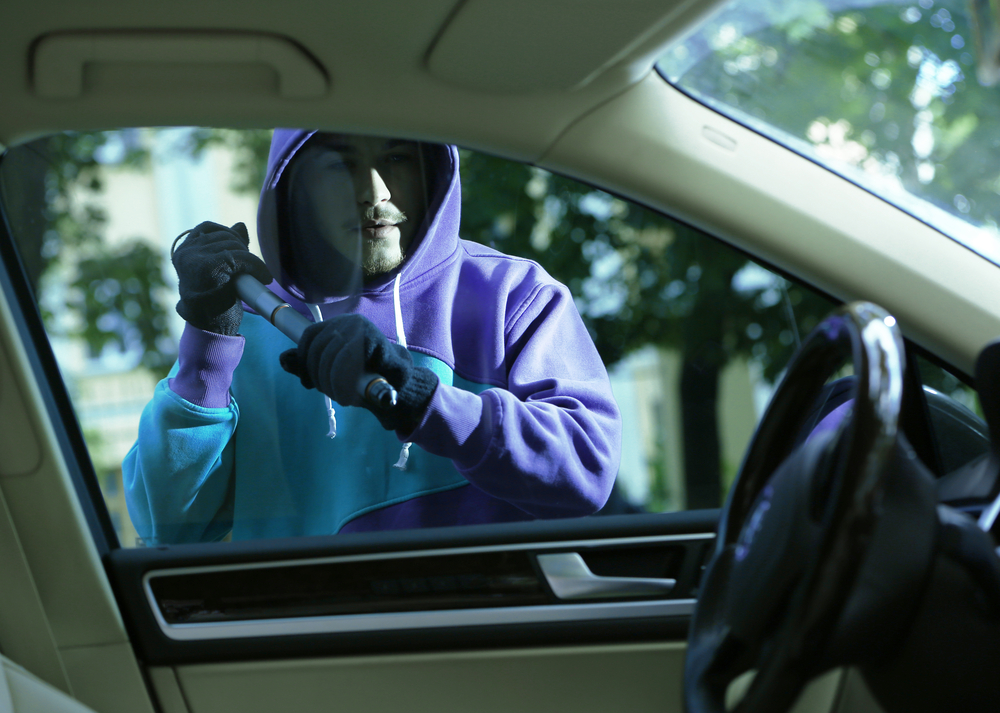Texas law prohibits you from taking property that doesn’t belong to you without the owner’s consent, especially if you intend to deprive this person of his or her property. People who take someone else’s property without planning to return it is committing an act of theft, so a fleeing criminal who “hotwires” a car to get away from a crime scene before abandoning it can be convicted of auto theft. Receiving property that you know is stolen can also lead to a theft conviction.

Texas law makes certain activities related to automobiles unlawful, which can include the following:
-Vehicle theft.
-Joyriding.
-Carjacking.
-Tampering with a Vehicle Identification Number (VIN).
Most crimes related to Texas auto theft are charged under the general theft statute, but there are some exceptions. The laws surrounding auto theft in Texas can also get complicated, because they can be charged as several types of offenses. Certain things (such as whether the owner of the vehicle was there and the value of the vehicle itself) are taken into consideration while deciding if auto theft in Texas will be charged as a misdem
Theft charges are classified according to the value and nature of the property being stolen. So the more valuable the property, the more severe the penalties will be. The prosecutor may rely on either the “fair market value” or the “replacement value” of the stolen property.” Penalties for Texas auto theft will depend on the classification, which can be as low as a class C misdemeanor to a first-degree felony. If the vehicle is worth less than $2,500, it’s considered a misdemeanor. But, if the value is anywhere above that, it’s considered a felony.
If you steal a vehicle with a value that’s between $2,500 and $30,000, it’s considered a state jail felony (which can lead to a fine of up to $10,000 with time in a state jail for a period of 180 days to 2 years). If the vehicle is valued between $30,000 and $150,000, it’s considered a third-degree felony (which can result in 2-10 years in prison and a fine of up to $10,000).
In the State of Texas, grand theft auto is defined as the taking of someone else’s vehicle with the plan to permanently keep it. You could also be accused of grand theft auto if you buy a vehicle without the proper title, don’t file the proper paperwork when you purchase it, or if you fail to return a rental. There’s no specific law that addresses grand theft auto charges in Texas, so it’s prosecuted under the general theft statute. The specific penalty will depend solely on the value of the vehicle that was allegedly stolen.
In the State of Texas, carjacking is defined as the taking of a vehicle from the owner through the use of or threat of force. It’s prosecuted under the state’s robbery statutes, which is considered a second-degree felony and are punishable by 2-20 years in prison with a fine of up to $10,000. Certain aggravating factors (such as the use of a deadly weapon or the concealment of the assailant’s identity) can elevate the charge to aggravated robbery, which is a first-degree felony that can lead to up to 99 years in prison and $10,000 fine.
If you operate a vehicle without the owner’s consent, it’s considered joyriding in the State of Texas. But, it’s a less serious crime than grand theft auto, because the person plans to return the vehicle to the original owner. So if you “borrow” a car without asking, you can be charged with joyriding. According to Texas statutes, the official charge is listed as the “unauthorized use of a vehicle.” This is considered a state jail felony carrying 180 days to a maximum of 2 years in a Texas state prison. You could also face a $10,000 fine.
Because the crime must be proven “beyond a reasonable doubt,” the burden of proof will fall on the prosecutor. There are two main elements of Texas auto theft that could result in a failure to meet that burden:
– Consent — You could claim that you had (or believed you had) the owner’s permission to use the vehicle when the incident occurred. Many times, defendants will argue that they had “implied consent” because if they had the owner’s permission, there is no crime.
– Intent — You could claim that you had no intention to permanently deprive the owner of the vehicle, which would reduce the charge to “unauthorized use of a vehicle” and not theft.
To successfully establish that you committed an act of motor vehicle theft in Texas, the prosecution must be able to prove that you “intentionally or knowingly” used someone else’s vehicle without the owner’s consent. It does not, however, require them to prove that you intended to deprive the owner of his or her property. This means that joyriding is also a crime that’s considered a state jail felony.
The State of Texas also prosecutes less common vehicle-related offenses, which can include the following:
– Not Returning a Rental Car — This type of crime is usually prosecuted under the more generic “theft of service” statute, but the specific punishment will depend on the value of the stolen vehicle.
– Tampering with a Vehicle Identification Number (VIN) — You commit this crime when you purposely change or remove the serial number from a vehicle and is charged as a class A misdemeanor that’s punishable with a fine of up to $4,000, up to one year in jail, or both.
Be sure to speak to a qualified attorney for more information.
If you’re looking for a criminal defense lawyer in Corpus Christi that can help you with your case, be sure to get in touch with Gale Law Group.
